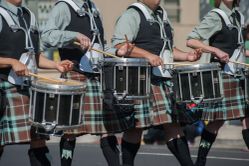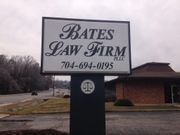
A concealed carry weapon (CCW) is a firearm kept on or near one’s person. Often, individuals with a permit will carry a gun in a concealed carry holster, in a purse, or in a vehicle. However, even when obscured, there are places where weapons are not allowed. If accidentally caught with one, you’ll need a criminal defense attorney to smooth the situation over. To prevent any trouble, learn more about how CCW permits work in North Carolina.
What Are the Qualifications for Having a CCW?
Having a permit to purchase a firearm doesn’t mean that you have the right to carry the weapon with you, even if it’s concealed. However, owners can have a loaded gun in their vehicle without a CCW, provided it’s well-concealed, and they have no prior felony convictions.
It’s unsafe and illegal to conceal handguns under seats, in the trunk, and in the glove compartment. Instead, opt for a locked, concealed container that’s integrated into the vehicle or in a console safe.
To obtain a CCW permit, you’ll first need a permit to purchase a firearm. CCW applicants must be 21 or over and have completed an approved firearms safety and training course. They must reside in the state and county for 30 days before applying. For approval, the applicant must not have a physical or mental condition that would keep them from safely handling a firearm.
The applicant cannot have been convicted of a DWI within three years of filing for a CCW permit. They can’t have had a Prayer for Judgement Continued (PJC), have disqualifying criminal offenses, or have a personal recognizance trial in motion. Before applying for a CCW, consult with a criminal defense attorney to see if there are disqualifying offenses on your record.
Where Are CCW Permitted?
 Concealed weapons are permitted in most areas, including parks, national forests, and roadside rest areas. They’re also permitted at funerals and parades unless there’s prohibiting signage.
Concealed weapons are permitted in most areas, including parks, national forests, and roadside rest areas. They’re also permitted at funerals and parades unless there’s prohibiting signage.
A CCW is allowed in restaurants or bars provided there’s no signage banning them. However, the carrier cannot be drunk.
Those with a CCW permit in any other state in the country will have theirs honored when visiting North Carolina.
Where Are CCW Not Permitted?
Concealed weapons aren’t allowed on school campuses or at related school functions. But, the firearm can remain in the vehicle provided that it’s out of sight and in a locked container.
Owners can’t carry inside correctional, law enforcement, or government facilities. Some buildings have state offices in them. Owners aren’t allowed to bring a CCW when visiting. North Carolina abides by federal CCW guidelines and prohibits firearms on federal property
If you need a criminal defense attorney for a CCW infraction, reach out to Bates Law Firm PLLC. Attorney Aaron D. Bates provides legal counsel throughout Wadesboro, NC, and is also the president of the local bar. Knowing that these cases can have life-changing results, he gives each client the personalized attention and rigorous defense they need. For more information on his practice areas, visit his website. To schedule a consultation, call (704) 694-0195.
About the Business
Have a question? Ask the experts!
Send your question

